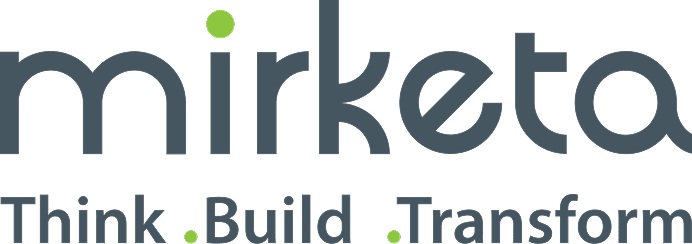Salesforce Einstein AI: Transforming CRM with Intelligent Insights
Author
September 5, 2019
Introduction
Artificial Intelligence (AI) has become a cornerstone of technological innovation, influencing various aspects of life, from voice-controlled assistants like Siri and Alexa to self-driving cars. Salesforce Einstein AI brings this transformative power into the world of Customer Relationship Management (CRM), providing intelligent insights and enabling smarter decision-making.
What is Salesforce Einstein AI?
Salesforce Einstein AI is designed specifically for CRM, offering actionable insights based on CRM data. Unlike general-purpose AI tools like IBM Watson, Einstein is tailored to enhance customer interactions and optimize workflows within the Salesforce ecosystem.
Key Characteristics of Salesforce Einstein
- Not Plug-and-Play: Components require training with data to deliver accurate outcomes.
- Product and Platform: Einstein functions as both a pre-built tool and a customizable platform.
- Advanced Technologies: It integrates machine learning, deep learning, natural language processing, and predictive tools to deliver actionable insights.
Why Salesforce Introduced Einstein AI
- Automate repetitive tasks, freeing up time for strategic initiatives.
- Track prospects using features like predictive lead scoring to convert leads efficiently.
- Anticipate outcomes and optimize customer interactions before they happen.
Features of Salesforce Einstein AI
- Out-of-the-Box Apps Pre-built apps are available for various Salesforce Clouds, including Sales Cloud, Service Cloud, Marketing Cloud, and Commerce Cloud. These apps are easy to activate by Salesforce admins and provide immediate value.
- Point-and-Click Solutions Fully configurable solutions like Prediction Builder allow admins to answer questions like, “What is the likelihood of this case needing escalation?”
- Programmatic Services Einstein’s programmatic services leverage advanced neural networks and deep learning for unstructured data, such as voice, images, and languages. For example, Einstein can identify products on a shelf from an image.
Salesforce Einstein AI APIs
Einstein AI Sentiment API
- Classifies text sentiments (positive, negative, neutral).
- Analyzes emails, chats, and social media to identify client satisfaction and prioritize support.
Einstein AI Intent API
- Categorizes unstructured text into user-defined labels.
- Determines customer intent from emails and inquiries, ensuring inquiries are routed to the right sales representative.
Why Choose Salesforce Einstein AI?
Salesforce Einstein AI is a game-changer for businesses leveraging CRM. It enables:
- Predictive analytics through Salesforce Analytics Cloud.
- Smarter lead scoring, reducing the time spent on prospecting.
- Enhanced customer satisfaction by anticipating client needs and offering personalized solutions.
Conclusion
Salesforce Einstein AI is a cutting-edge solution that seamlessly integrates AI into CRM. By utilizing advanced technologies, it empowers businesses to make informed decisions, improve efficiency, and provide unparalleled customer service. Embracing Salesforce Einstein AI is a step toward staying ahead in the competitive world of CRM.
Pranshu Goyal, Director of Products at Mirekta, states: “We envision DSM to be used by every small to a medium-sized organization dealing with bad data and want to get rid of duplicates easily with no cost. We have faced issues dealing with duplicates in our organization. That inspired us to make a solution that is not only simple to use but can be used widely to make the organization’s data clean to make them more efficient and productive. We want DSM to be a solution for every organization looking for duplicate management capability better than the Salesforce out-of-the-box solution with no additional cost.”
Recent Posts
-
 Salesforce API Testing – The Modern QA Approach for Reliable Integrations05 Jan 2026 Blog
Salesforce API Testing – The Modern QA Approach for Reliable Integrations05 Jan 2026 Blog -
 Transforming SMB Sales with Salesforce Commerce Cloud12 Nov 2025 Blog
Transforming SMB Sales with Salesforce Commerce Cloud12 Nov 2025 Blog -
 Generative AI Testing tools03 Nov 2025 Blog
Generative AI Testing tools03 Nov 2025 Blog -
 Mirketa Unveils Next-Gen AI Solutions to Redefine the Future of Work Across Industries29 Jul 2025 Press Release
Mirketa Unveils Next-Gen AI Solutions to Redefine the Future of Work Across Industries29 Jul 2025 Press Release -
 Salesforce Implementation School Universities Higher Education23 Jul 2025 Blog
Salesforce Implementation School Universities Higher Education23 Jul 2025 Blog -
 Salesforce Health Cloud Implementation Partner: A Complete Guide23 Jul 2025 Blog
Salesforce Health Cloud Implementation Partner: A Complete Guide23 Jul 2025 Blog -
 XML Parsing: Using MINIDOM Vs Element Tree (etree) in Python02 Jul 2025 Blog
XML Parsing: Using MINIDOM Vs Element Tree (etree) in Python02 Jul 2025 Blog -
 A step by step Guide to create Salesforce web-to-lead form30 Jun 2025 Blog
A step by step Guide to create Salesforce web-to-lead form30 Jun 2025 Blog -
 How AI is Transforming User Experience Design in 202526 Jun 2025 Blog
How AI is Transforming User Experience Design in 202526 Jun 2025 Blog -
 How a Salesforce NPSP Consultant Can Elevate Nonprofit Impact25 Jun 2025 Blog
How a Salesforce NPSP Consultant Can Elevate Nonprofit Impact25 Jun 2025 Blog -
 Salesforce Load and Performance Testing: Essentials, Importance & Execution23 Jun 2025 Blog
Salesforce Load and Performance Testing: Essentials, Importance & Execution23 Jun 2025 Blog -
 Salesforce Website Integration Boost Leads, Automation & Customer Experience11 Jun 2025 Blog
Salesforce Website Integration Boost Leads, Automation & Customer Experience11 Jun 2025 Blog -
 Driving Results in Manufacturing with Salesforce Manufacturing Cloud11 Jun 2025 Blog
Driving Results in Manufacturing with Salesforce Manufacturing Cloud11 Jun 2025 Blog -
 Accelerating Growth with NetSuite SuiteCommerce02 Jun 2025 Blog
Accelerating Growth with NetSuite SuiteCommerce02 Jun 2025 Blog




















